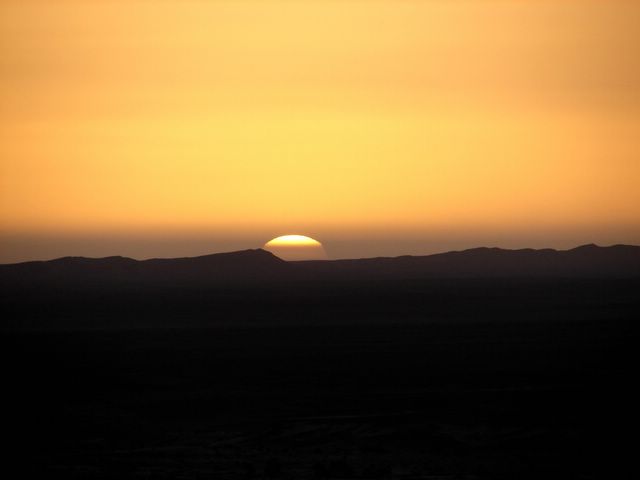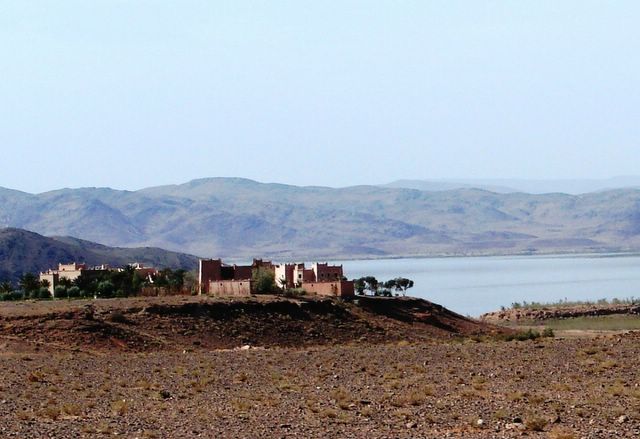World Economic Outlook 2005
The International Monetary Fund (IMF) recently released its World Economic Outlook report for 2005, making a series of interesting statements regarding needed actions to mitigate the risk of financial crisis and promote a steady transition to the emerging realities of the global economy. Please find below some summary points I extracted so far from my reading of the IMF conclusions and the WEO report, which can be found in its entirety Here:
1. Although projected global growth is forecast to be 4.3 percent in 2005, volatile oil prices and higher interest rates cause the world economy to face some downside risk. Further, the global economic expansion continues to rely heavily on growth in the United States and emerging Asian economies, while the Euro area and Japan continue to struggle (growth forecast for US is 3.6% compared to 1.6% for Europe).
2. China needs to show greater exchange rate flexibility in light of the fact that investment in China continues to increase - It now accounts for a whopping 45 percent of GDP. By contrast, India needs more investment, especially in its infrastructure, which will require a realignment of government budget priorities and the strengthening of the Indian private sector.
3. The forecast growth of the world economy faces three significant risks: (a) higher interest rates, (b) high and volatile oil prices, and (c) increasing current account imbalances.
4. Two important medium-term transitions that are taking place in the world: (a) the increasing economic importance of developing countries; and (b) the aging of industrial country populations. The IMF believes that the international community has done "too little to adjust to these transitions."
5. Over the next 25 years, China should see car ownership multiply 15 times, and India only slightly behind. The spectacular growth of these countries, although beneficial to all, will strain existing resources. One example of such consequence are high and volatile oil prices.
6. The rich industrial countries are aging. The IMF explains that "not only should they be restructuring their own work environment to make better use of the changing labor force, but also many should be sending capital to younger, poorer developing countries."
7. Rich countries should be saving more and running larger current account surpluses, while poor countries should be investing more, and running larger current account deficits. Yet, today, what we see is that emerging markets are financing the rich. Therefore, the problem is that the current direction of capital flows does not match the realities of global demographic trends.
8. The United States needs to save more. The IMF believes that the administration's pledge to cut by half the fiscal deficit in five years must be backed by "credible measures to achieve it"...and that "monetary policy could help if higher interest rates slow price growth and lead to greater household savings."
9. Regarding oil, the IMF concludes that "Oil price volatility can be reduced by disseminating more timely and accurate information on production and inventories. Unnecessary impediments to oil investment, ranging from uncoordinated environmental standards across the various states of the United States to drastic restrictions on private or foreign participation in the oil sectors of some countries, need to be removed. Energy efficiency can also be improved by raising the price of oil and gas to their true economic cost. In particular, countries that have not passed through oil price increases to consumers, or who do not impose sufficient taxes, should start doing so."
10. The foreign currency reserve build-up by emerging Asian economies is now undermining both global monetary control and the soundness of their own financial systems. IMF expects "greater exchange rate flexibility would slow reserve build-up and allow countries to regain monetary control."


























8 Comments:
How much more do the economies of developed nations such as the United States expect to grow? they cannot grow forever! Humanity needs to start looking for a balancing point. All I hear on these financial forecast about economies of scale, energy markets etc etc dont address the volatile reality of our continued reliance on material exploitation which is destroying everything for everyone. I guess they arent supposed to, but there should be a greater forum present for people genuinly concerned about the well-being of our great-great granchildren etc such as your blog.
One of the most basic constraints of economic principle, opportunity cost, is always overlooked when it comes to long term consequences of decisions.
also, Western nations will all be bankrupt within 20 years due to the reason you clearly outlined: aging population. In one of Canada's eastern provinces, Nova Scotia, the 60+ demographic will represent something like 70% of the population in 15 years I think.
a third world nations such as Iran, which has one of the youngest populations of the world will also be bankrupt, but that a result of stupid clerics blocking rational peoples ambitions.
May 11, 2005
Khalij, your point about aging population is indeed very important. But how can you encourage the population to reproduce other than giving them tax breaks for each additional child? No one's going to do that in a democratic country!
May 11, 2005
We shouldnt reproduce...A dynamic city such as Toronto is gaining all its growth through immigration. without it there would be a loss of population.
We as a race have already overpopulated. Thats my point. Im not one of the types who lives in a fantasy, but we need to think about being more efficient with the limited amount of resources available to us. Think water...only country that will be doing good 50 years from now in terms of water availability is Canada. And even our comprehensive water policies have failed to date.
May 12, 2005
But how can you encourage the population to reproduce other than giving them tax breaks for each additional child?
It's called AL-Key-Hol. ;)
May 13, 2005
"6. The rich industrial countries are aging. The IMF explains that "not only should they be restructuring their own work environment to make better use of the changing labor force, but also many should be sending capital to younger, poorer developing countries."
hmmm isn't this part of the reason why we hear so many people lately losing their jobs because of the outsourcing trend?
What's left behind are too many people with particular skills and a very grim outlook for finding jobs to practice these skills. I know way too many people like that. I guess maybe that's the the price that has to be paid for a fairer redistribution of funds globaly....
May 13, 2005
The problem is, people have the wrong kind of skills.
May 13, 2005
Khalij: first, good point re Opportunity cost, which as you know, drives comparative advantage - the governing logic of trade especially in an era of globalization - so great point.
There is no doubt that the reality and sure forecast we face is what the IMF stated: aging pop in industrialized countries and younger work force in developing nations. Did u know that around 70% of the pop in the Middle East for instance is under the age of 35! So, here lies a great opportunity if, as you rightly point out, the right political, economic, and social changes are carried forward. This is the most frustrating thing about the Middle East. It actually has the demographics on its side but at the same time its biggest problem is human development - so ok you got a bunch of young people but most of them do not have the right skills, education etc to play a competitive role (produce comparative advantage) in global markets - unlike India and China, which are logically rising in global stature. That's why these times we are living are so critical for the Middle East - It's make or break time. It could be the start of great opportunity but it can also be the beginning of great turmoil depending on actions taken today re that region.
Irina: I believe that process to be natural. That is, it is something that is heavily dependent on the global environment a society creates for itself over a period of time.
Lauren: Is that how you make babies :) But everytime I tried it, my ability to exercise command & control was greatly compromised :))
Myrtus: Actually what the IMF is saying makes sense. They are basically saying the rich need to invest and the poor need to work. Why? The rich are getting older so they need income (forget Social Security) and the poor who are young need to get out of poverty by being given opportunities to work. So, Bob who is old and has money sitting somewhere can invest in a profitable business run by young Abide living in Ghana - a financial situation that benefits both.
May 15, 2005
Thanks jawad, that DOES make a lot of sense.
May 17, 2005
Post a Comment
<< Home